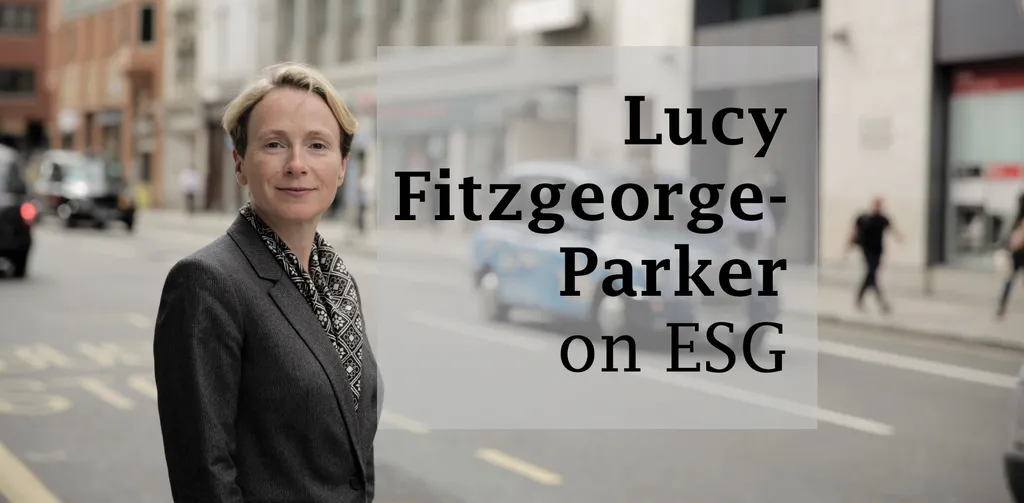Retail investors need to be protected from the sharks of the financial sector. They should be warned that their investments could go down as well as up. They should only be sold products that match their risk appetite. And their advisers should disclose any conflicts of interest.
So far, so uncontroversial. Ensuring that unscrupulous operators do not take advantage of retail investors’ ignorance or greed is seen as an essential role of regulators around the world, both for the benefit of investors themselves and to protect society from their wrath if things go wrong.
Recently, however, the attention of policymakers has turned in a different direction. As environmental, social and governance (ESG) investing has gone mainstream over the past two years, calls have been growing for retail investors to be protected from greenwashing.
Regulators and legislators have responded. In the EU, asset managers are required to give their funds a sustainability rating. Retail investment products deemed sufficiently sustainable will soon be awarded an “eco label”, a concept that has already been adopted by several countries.
Even the US Securities and Exchange Commission (SEC) has got in on the act, opening an investigation into Germany’s DWS following accusations of greenwashing.
This is qualitatively different from previous regulatory interventions. For the first time, the aim is not to prevent retail investors from losing money but to stop fund managers exploiting their desire to do good.
Questions
This raises several questions. Firstly, is it possible to fully inform retail investors of the sustainability of their investments?
ESG is a complex area. In theory, it covers everything from gender diversity and labour practices to plastic pollution and water supply. In practice, for many investors, it mainly means climate, with perhaps a side order of biodiversity, gender equality or human rights.
None of these are simple topics. Some are highly scientific, often in areas where the science is rapidly evolving and the data is patchy and unreliable. Some are subjective. Social inclusion means different things to different people in different parts of the world.
Also still very much up for discussion is what the aim of ESG investing should be. Is it to exclude bad actors or unacceptable activities? If so, is it enough to avoid industries such as gambling or arms manufacture or should the worst performers in every sector be excluded?
Should managers of ESG funds simply take into account the financial risks of climate change on their investments or should they try to effect change? If so, how should they do it – through divestment, engagement or support for sustainability leaders?
Fund managers, bankers and policymakers are still grappling with these issues – yet somehow there is an expectation that policymakers should be able to devise a clear set of rules that will prevent retail investors from inadvertently buying something that is less sustainable than they imagined.
According to fund managers, what retail investors want is a single label or a simple metric that will reassure them that their money is making a difference
Of course, improving disclosures around investments is never a bad thing. Nor is forcing asset managers to be more rigorous in their use of language. Even conscientious industry professionals admit to using terms such as ‘ESG’, ‘sustainable’, ‘responsible’ and ‘ethical’ interchangeably.
In that respect, fund managers say the EU’s Sustainable Finance Disclosure Regulation (SFDR), with its Article 8 (ESG integration) and Article 9 (impact) designations, has been helpful in forcing more discipline on the sector.
At the same time, there are concerns that this broad-brush approach risks oversimplifying complex issues. Then again, if fuller disclosure is mandated, will retail investors have the time, the knowledge or the patience to evaluate it?
Oddly, what is often missing in this discussion is any examination of what precisely retail investors are being protected from and why they deserve that protection.
The worst that is likely to happen to a well-meaning investor in an ESG-labelled fund with weak sustainability credentials is that they will unwittingly own a handful of shares in an oil company or a tech firm with questionable labour and data privacy practices.
As the howls of outrage whenever a new commentator discovers that leading ESG indices include notorious polluters and exploiters attest, this is generally seen as undesirable. Yet this is as much about unrealistic expectations as it is about unscrupulous practice by asset managers.
According to fund managers, what retail investors want is a single label or a simple metric that will reassure them that their money is making a difference. Setting aside the question of whether that is even possible in an area as complex and subjective as ESG, is it reasonable?
Information
There is plenty of information in the public domain about sustainable finance products. The composition of ESG indices, for example, can be found with a few clicks of a mouse. If investors want to ensure their money is being used responsibly, should they not be expected to do basic due diligence?
Similarly, the most cursory Google search will turn up ample advice on how retail investors can make a difference, from quizzing pension fund managers on their engagement policies to tracking down genuinely impactful investments.
Again, this requires a bit more work on the part of the investor – but that, surely, is as it should be.
Believing that you can save the planet or achieve societal change by buying an ETF with an ESG label, without enquiring into its composition or taking the time to understand its strategy, is the financial equivalent of signing an online petition demanding an end to fossil fuels.
Why, then, are policymakers devoting so much time and resources to protecting retail investors from the – non-financial – consequences of their own laziness?
Perhaps the real worry is not that a few “slacktivist” investors will be misled but that this will discredit the sustainable finance industry and its agenda. Clearly, this is partly true. Any and all accusations of greenwashing are gleefully jumped on by the still numerous critics of ESG.
But a label is not going to convert the diehard sceptics – and for once they are probably right. ESG is a nascent, complex area that requires investment of both time and attention as well as cash. No amount of regulation is going to change that.




